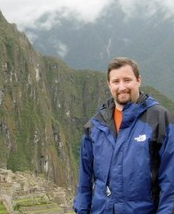Jonathan Juliano, MD, is an Assistant Professor in the Department of Medicine’s Division of Infectious Disease. Medical Director of the UNC Infectious Diseases Clinic. He is also adjunct faculty in the Department of Epidemiology at the Gillings School of Global Public Health and a preceptor in UNC’s Curriculum in Genetics and Molecular Biology. Dr. Juliano also acts as the Medical Director for UNC Hospital Antibiotic Stewardship team and is the Associate program Director of research and Professional Development for the UNC Infectious Disease Fellowship program.

What brought you to UNC Medical Center?
My family has had strong ties with UNC and I have lived in the area for a good part of my life. Thus, when it was time to choose a fellowship and faculty position, it was an easy choice for me.
Did you always want to be a doctor?
No. I thought that I would actually be a basic science researcher when I was in undergraduate studies at University of Toronto. During that time, I spent time in labs at UNC in the summers, which solidified my interest in laboratory work. However, I began to realize the questions I was interested in were more translational in nature, thus going to medical school became the natural path.
How did you choose your specialty?
I have always known I wanted to be involved in Infectious Diseases, ever since my freshman Introduction to Microbiology course. The exact way that I would be involved obviously evolved over time. However, because of a strong interest in history, the impacts that infectious diseases have had on human populations and evolution was an extremely strong reason I chose this field.
What do you find most rewarding about your work?
I love all aspects of my career, including the clinical care and research. However, what I find the most rewarding is the educational component. I draw a great deal of personal pleasure by watching my trainees succeed. I believe that I will have much greater impact on improving human health through what my trainees do than I will ever have through my direct contribution.
What are some of the new developments in your field of specialty?
My research work focuses mostly on the evolution of drug resistance in different infectious diseases and in particular malaria. Antimicrobial resistance is a critical problem across all kinds of infections, thus there are major changes happening quite frequently. This interest has bridged into my clinical world as well, where major efforts nationally to promote appropriate antimicrobial use to prevent resistance have been occurring through the development of antimicrobial stewardship programs.
Where are you from?
Toronto, Canada
Is there a particular achievement (professional or personal) that has been most gratifying to you?
Receiving the UNC 2016 Distinguished Teaching Award for Post-Baccalaureate Instruction is a major highlight of my career. This is a university wide award given to only four faculty members a year. The reason it is so important is because my mentees were the ones who got together to nominate me for the award.
What is the best advice you’ve ever received?
That is hard to say. When I think about who has provided the best mentoring for both my personal and professional life, three key figures really come to mind: my medical school mentor, Fred Sparling, my fellowship mentor, Steve Meshnick, and my father. Each has provided enormous amounts of support and advice that has helped me get to where I am now.
If you weren’t a physician, what would you like to be doing?
I think I would be a chef. It’s a lot like working in the lab.
What hobbies do you enjoy?
The most important thing for me is spending time with my family. I also love to cook, travel, bike and hike.